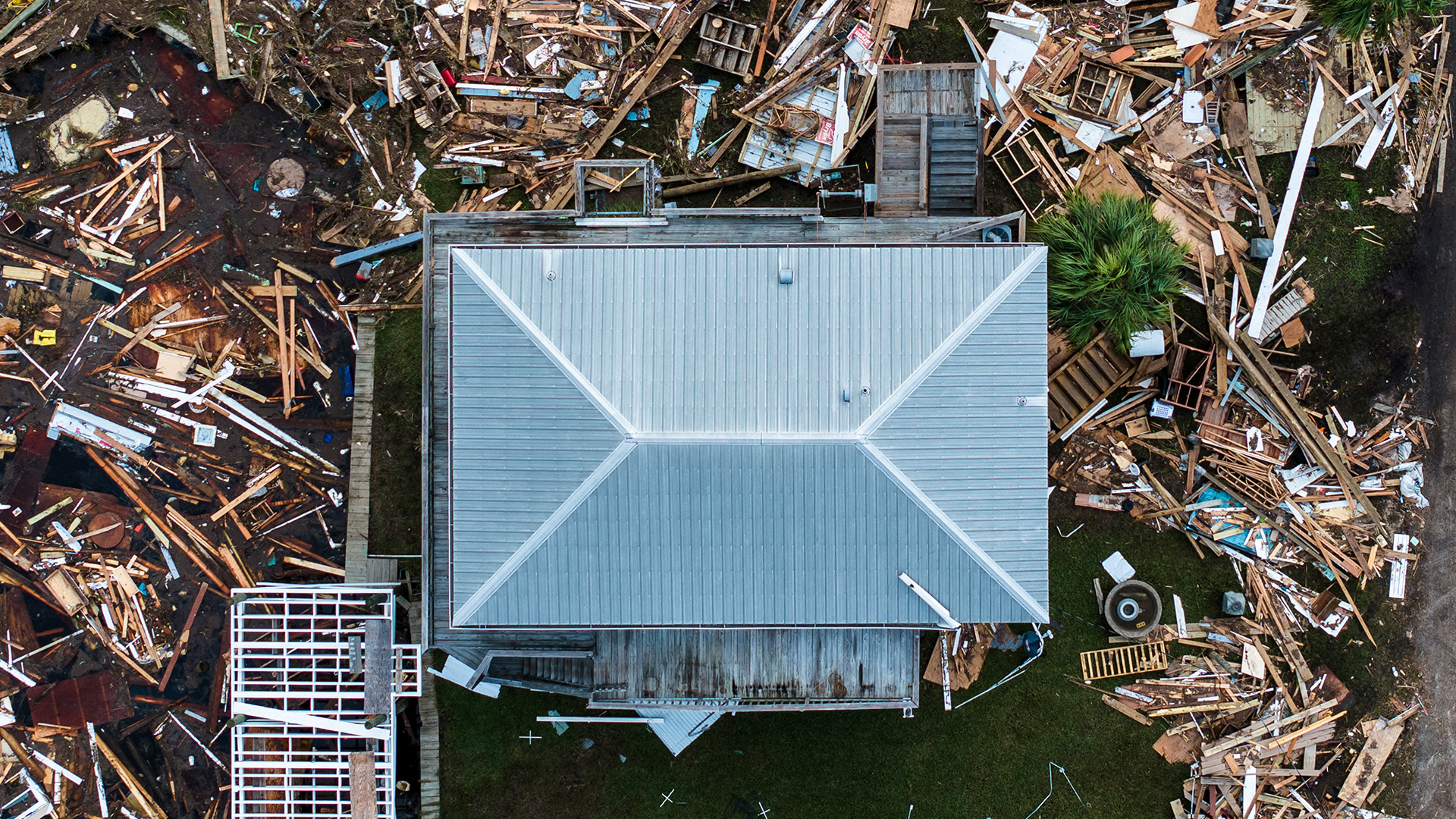
Simone Del Rosario: The state of Florida is bracing for Hurricane Milton’s wrath less than two weeks after Hurricane Helene battered the Gulf Coast.
The back-to-back hurricane attacks are a devastating reminder that one in three Florida homes is susceptible to storm surge flooding from hurricanes, according to Guidewire.
As homeowners pick up the pieces of their lives, another storm rears its head, one that is set to ravage a much larger portion of the state.
Because of storms like these, Florida is the most expensive state in the country for home insurance.
Chuck Nyce: We’ve always pitched ourselves as an affordable place to live, and from a tax perspective, it is. But I would argue today in Florida that this is something that people need to be aware of: insurance costs are high.
Simone Del Rosario: The average annual cost of home insurance in Florida neared $11,000 in 2023, and Insurify projects this year’s average will get closer to $12,000.
That doesn’t include flood insurance, which typically requires a separate policy.
Chuck Nyce: When you’re talking about spending $10[,000] or $15,000 a year for homeowners insurance coverage, $1,000 a month or more, that is part of your mortgage payment. And that has to be a cost that’s factored in to the cost of living here.
Simone Del Rosario: While property insurance’s share of the average mortgage payment is going up nationwide, in places like Miami, that burden is twice as big.
Shan Ge: A lot of research is suggesting that both the risk and the rising insurance premiums are depressing home prices compared to what it would be. My name is Shang Ge I am an assistant professor of finance at NYU Stern School of Business. I’ve been researching the insurance industry for a few years.
Simone Del Rosario: Ge’s research shows when insurance rates go up, two things happen: Homeowners buy less coverage and home values go down.
Shan Ge: And this, this drop of home values is pretty dramatic. Buyers are going to be willing to pay less for property compared to a world where Florida does not face climate risk, does not face all these disasters, and does not face these increasing insurance premiums.
Simone Del Rosario: Ge says she hopes developers will take her research into account, in Florida and elsewhere.
Shan Ge: When they see these prices not as high as they would be in this counterfactual world, we’re hoping that that will kind of slow down the development and deter discourage more people from moving into risky places.
Simone Del Rosario: In August, the median sales price of a single family home in Florida dropped for the first time in at least five years, according to data from Florida Realtors.
For condos, which face not only higher insurance costs but mandatory maintenance needs, August marked the second month of annual price declines.
So far, insurance premiums at a premium have not deterred the rampant migration to the sunshine state.
But it may influence who can afford to come in and who may be forced to leave.
Chuck Nyce: Insurance prices risk, and if you can’t afford to live there, you shouldn’t move there. So it’s a really difficult problem. I always tell people like, I can’t afford to live in Monaco and I can’t afford to drive a Bugatti. But I know that. It’s much more difficult to tell someone who’s maybe lived somewhere for generations that you can’t afford to live there anymore.











